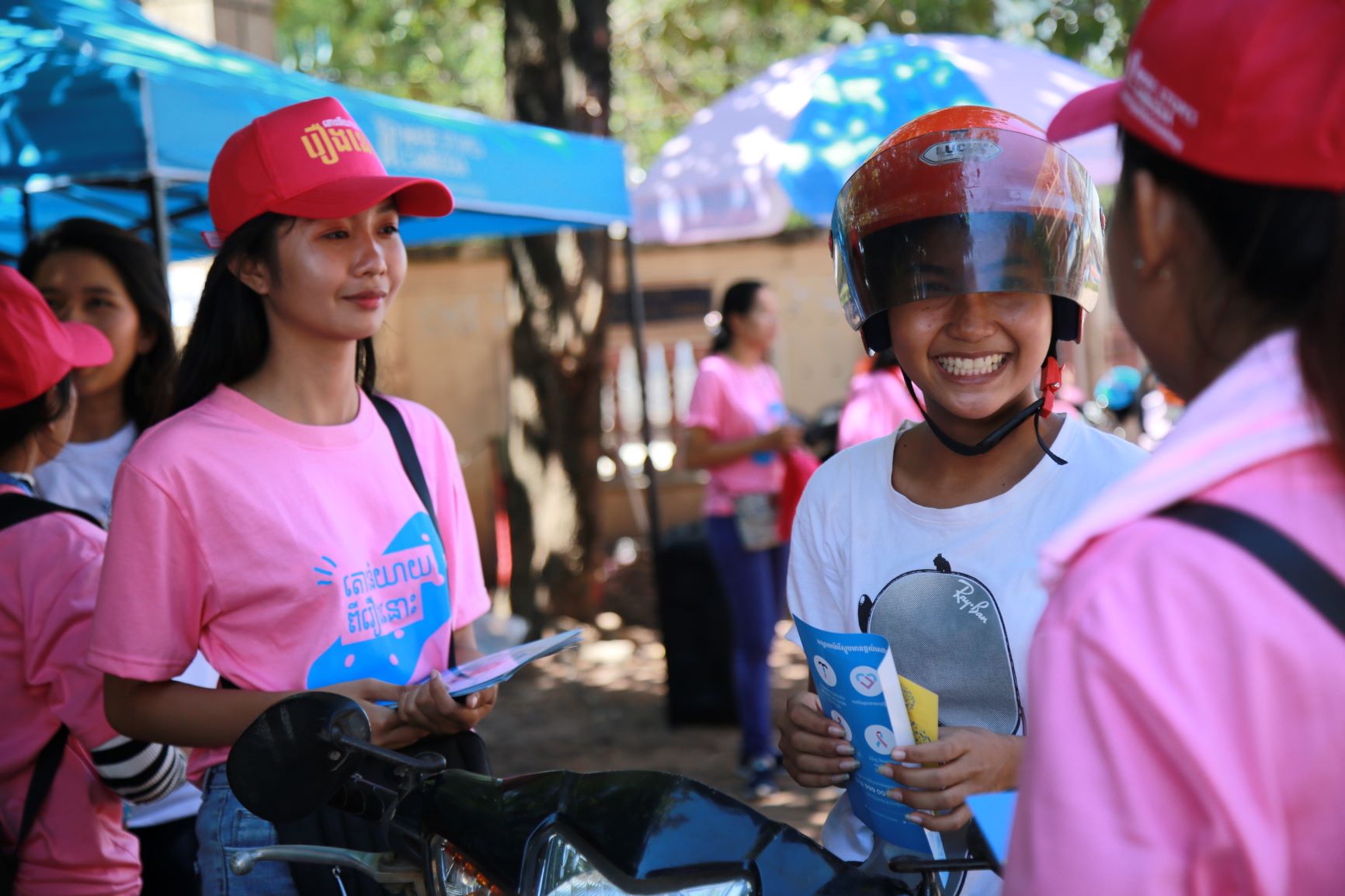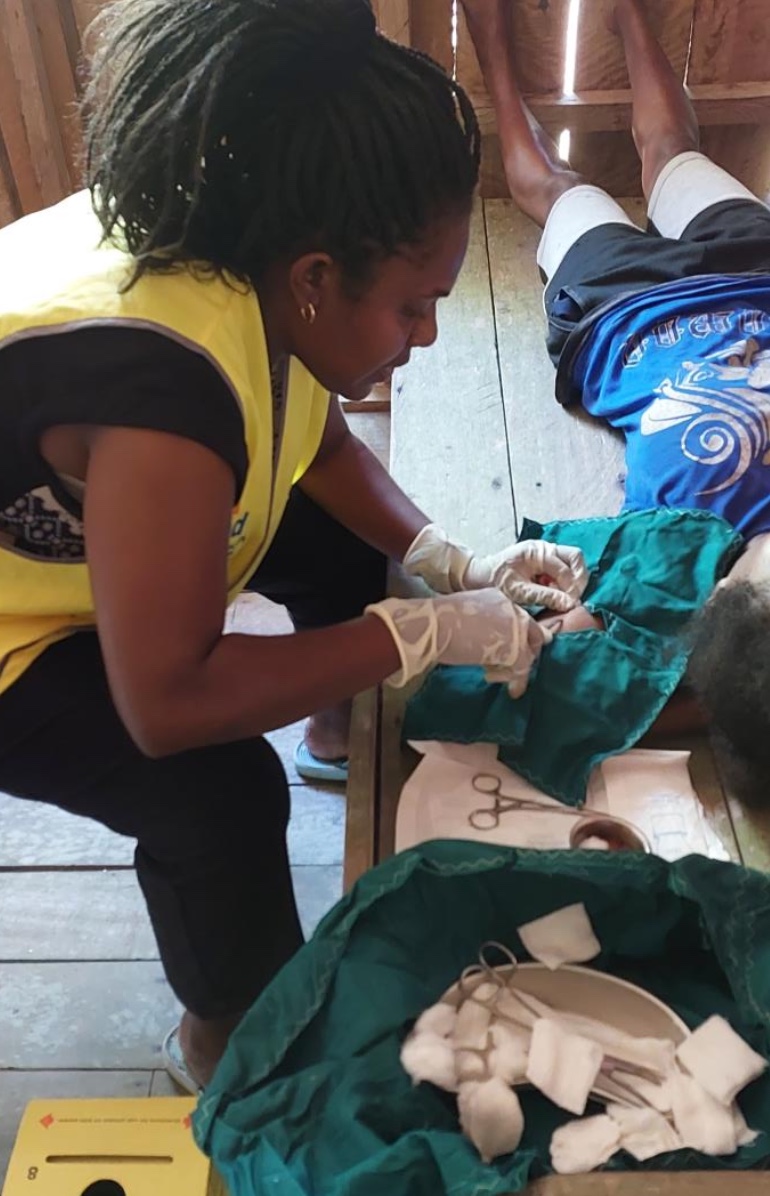Globally, access to modern methods of contraception is a game-changer. With World Contraception Day fast approaching on September 26, the international development and philanthropy sector has an important opportunity not only to assess global progress on access to contraception, but also to examine emerging threats, and to consider the urgent role philanthropy must play in addressing these challenges.
Why access to modern contraceptives matters.
The benefits of access to modern contraception are well researched and documented (See UNFPA 2022). For women and girls, contraception is essential to improving quality of life and advancing gender equity. It improves maternal and infant health by allowing for space between pregnancies. It also enables girls and young women to remain in education and income-generating opportunities longer. Fundamentally, it supports a woman’s right to make decisions about her own body. Access to contraception also has significant flow on effects for families and communities. It allows low-income families to more effectively plan for their own financial wellbeing, and improves shared decision making within families. In doing so, modern contraception has been shown to play a vital role in reducing poverty levels globally (UNFPA 2025). In recognition of this, the right of all women to access contraception was officially declared by the United Nations in 1968.

Image: Marie Stopes International Asia-Pacific Cambodia‘s chatbox program for educating girls about sexual and reproductive health. MSIAP Cambodia is supported by Women’s Plan Foundation.
Threats are on the rise.
Nevertheless, over the past decade, we have witnessed a surge in resistance and barriers to access to contraception globally, including misinformation, supply issues, and religious, cultural and gender biases.
First, the impact of the withdrawal of major funding sources, such as USAID, on family planning in developing countries is well established. Recent actions taken by USAID have intensified past actions taken under the Global Gag Rule (2017; 2019 and 2025) – a devastating policy whereby US funding to any international organisation that provides, advocates for, or even mentions abortion was reinstated. The Guttmacher Institute is monitoring, minute by minute, the estimated impact of the withdrawal of USAID funding on access to contraception. At 4.30 pm AEST August 1, some 24,521,348 women and girls have been denied contraceptives because of recent foreign aid cuts. The Guttmacher Institute reported that USAID funding in 2024 was responsible for 17.1 million unintended pregnancies, 7.6 million unplanned births, 5.2 million unsafe abortions and averted 34 thousand maternal deaths. This funding has now been withdrawn. A decision was also recently made in the US to destroy $9.7 million worth of contraceptive supplies rather than give them to developing countries (The Guardian 2025).
Second, this reduced funding space has led to competing needs for resources across and within sectors. In turn, this has led to a retreat from holistic systems thinking or the framework in which organisations and institutions see themselves as partners in an integrated whole. For example, in Australia and across OECD countries we are seeing a paring back of not just Overseas Development Aid (ODA) but also to the wider health sector, within which family planning is an integral part (Rummery for DevPolicy Blog 2025). Similarly, during COVID-19, immunisation was prioritised over family planning in many developing countries.
Third, deliberate spreading of misinformation and myths about modern contraception is on the rise. In addition to the recent dismantling of the data systems needed to progress family planning endeavours, a recent Sexual and Reproductive Health Matters newsletter explained that: “SHRH opposition groups are effectively mimicking scientific institutions to introduce uncertainty around well-designed studies making it harder for SRHR evidence to gain trust” (SRHM 2025).
Fourth, we have seen a re-emergence of cultural, political and social opposition to family planning as part of a wider pushback against gender equality and women’s rights. Health workers providing contraceptives and family planning have come under attack in various locations (Telegraph 2025) and UN Secretary General António Guterres recently lamented that: “The poison of patriarchy is back – and it is back with a vengeance: slamming the brakes on action; tearing up progress; and mutating into new and dangerous forms.” (UN / CSW 69 Opening 2025).
And finally, the link between climate change and access to contraception is also increasingly clear. It has been shown that increasing natural disasters arising from climate change are disproportionately affecting women and impinging on their reproductive rights (Bista for The AIDN Beat 2025). Women also disproportionately suffer in humanitarian disasters and conflict situations, with reduced access to contraceptives coupled with increased rates of rape and sexual assault.

Image: Australian Doctors International (a Women’s Plan Foundation supported NGO) administering contraception in PNG.
What role can philanthropy play?
But all is not lost. Here at Women’s Plans Foundation, an Australian philanthropic organisation that is funding NGOs focused on contraception across the Asia-Pacific, we have learnt that even small philanthropic or grant-making organisations can play an important role in fostering women’s reproductive rights and access to family planning. Funders, philanthropic and grant-making organisations can and should:
- Advocate in Australia for increased resources and funding for family planning in developing countries using evidence-based approaches to push back against misinformation. This will often mean being agile and adapting messages to secure different sources of funding or engagement with diverse audiences, such as appealing to those who are more receptive to economic arguments for contraception or those more receptive to educational, climate change and population or women’s rights arguments for contraception.
- Foster partnerships across and within sectors. In 2025, fostering partnerships is not only necessary for systems-wide approaches but for survival. For NGOs delivering family planning services this may mean integrating with other organisations or services that are not specifically about family planning but share a common goal. For example, during COVID-19, one NGO that Women’s Plan Foundation funded was able to successfully piggy-back family planning services onto ongoing immunisation services. This partnership quickly taught us at Women’s Plan Foundation how funders must recognise that there are many ways to deliver a service. Sometimes service delivery must happen via more innovative methods, other partners or wider services.
- Take a systems approach to funding even when funding particular projects. As a relatively small funding agency, we have learnt that we may not be able to effect major change at the state level. However, we can still encourage aspects of wider and sustainable development. For example, we can fund education for girls, boys and communities, capacity building of local health staff to deliver contraceptives safely, outreach activities or even support small scale health infrastructure if necessary. In doing so, we recognise that we are funding a wider ecosystem and supportive context for family planning. It also allows us to support NGOs to identify their own localised needs and capacity development.
Even as a small philanthropic organisation, at Women’s Plans Foundation, we have learnt that we can make a difference in the face of rising threats. It is not easy. But we can do this by making funding decisions that carefully consider the wider social, cultural and political contexts in which our NGOs operate, working with and being led by our NGO partners, and striving to develop trust-based and communicative relationships with the NGOs we fund. This task has never been more urgent in the face of 2025’s global aid cuts and the rolling back of women’s rights globally.
——————————
 Sue Funnell is a volunteer with Women’s Plans Foundation. She manages Women’s Plan Foundation’s partnerships and grants to NGOs. She worked for some 40 years as a program evaluator, designer, consultant and trainer. From 1999 to 2015 she worked as a consultant in several developing countries for AusAID and with several United Nations organisations.
Sue Funnell is a volunteer with Women’s Plans Foundation. She manages Women’s Plan Foundation’s partnerships and grants to NGOs. She worked for some 40 years as a program evaluator, designer, consultant and trainer. From 1999 to 2015 she worked as a consultant in several developing countries for AusAID and with several United Nations organisations.
Women’s Plans Foundation was established in 2003 by Alice Oppen OAM. Women’s Plan Foundation is a charitable trust dedicated to supporting family planning initiatives in developing countries in the Asia Pacific region. Through their grants, Women’s Plans Foundation empowers recipients to make a positive impact on the lives of women, girls and their communities. They are currently funding Australian Doctors International in PNG, ChildFund in PNG, Family Planning Australia in Samoa and MSIAP Cambodia, PNG and Timor Leste.
Feature image: Contraception and consent programs in PNG led by Australian Doctors International (a Women’s Plan Foundation supported NGO).
